É difícil definir um
cineasta como William Wyler. Seu filme mais famoso é a versão de 1959 de
Ben-Hur, um épico bíblico masculinizado com uma boa dose de ação e drama.
Entretanto, Wyler dirigiu 73 obras, entre filmes e séries de TV, de 1925 a
1970. Ele fez westerns, dramas históricos, comédias românticas, documentários.
E ele trabalhou três vezes com uma atriz maravilhosa: Bette Davis.
It’s hard to define a
filmmaker like William Wyler. His most famous movie is the 1959 version of
Ben-Hur, a macho biblical epic with a good amount of action and drama. However,
Wyler worked on 73 movies and TV series, from 1925 until 1970. He made
westerns, historical dramas, romantic comedies, documentaries. And he
collaborated three times with a wonderful actress: Bette Davis.
“Jezebel”, a primeira
colaboração deles, conta a história de Julie (Davis), uma garota voluntariosa
do sul dos EUA que é apaixonada por Preston (Henry Fonda). Eles estão noivos,
mas não necessariamente combinam. Julie é indomável demais para Preston – prova
disso é quando ela escandaliza a cidade toda e vai com um vestido vermelho vivo
a um baile no qual todas as outras mulheres estão usando branco. Preston rompe
o noivado e sai da cidade, mas retorna um ano depois para impedir que uma
epidemia de febre amarela chegue ao local.
“Jezebel”, their first
collaboration, tells the story of Julie (Davis), a spoiled Southern belle that
is in love with Preston (Henry Fonda). They are, actually, engaged, but Julie
is too wild for him – and a proof of this happens when she scandalizes the
whole town by wearing a bright red gown to a party in which all the other women
wore white. Preston leaves her, but comes back in order to avoid a yellow fever
epidemic to hit the town.
Wyler e Davis se
conheceram em 1931. Ela era uma novata fazendo um teste para o filme “A House
Divided”, que seria dirigido por Wyler. O vestido dado a Bette para o teste não
serviu muito bem e o decote era muito revelador. Quando ela entrou no set,
ouviu este comentário de Wyler: “O que pensar dessas garotas que só mostram os
peitos e acham que vão conseguir o trabalho?”. Ela não foi escalada para o
papel, e não esqueceu a humilhação. E em 1938 ela estava pronta para se recusar
a trabalhar com Wyler em “Jezebel”. Felizmente, isso não
aconteceu.
Wyler and Davis met in 1931.
She was a newcomer doing a screen test for his film “A House Divided”. The
dress given to her didn’t fit right and there was too much cleavage. When she
appeared on set, Wyler made the comment: "What do you think about these dames who show
their chests and think they can get jobs?" She didn’t get the job and
didn’t forget the humiliation. And, in 1938, she was ready to refuse working
with Wyler in “Jezebel”. Luckily, it didn’t
happen.
William Wyler era
um perfeccionista, e exigia que sua estrela visse com ele as cenas rodadas
naquele dia, todos os dias. Foi aí Bette entendeu por que ele queria que ela
repetisse sempre as cenas em busca do take perfeito. Estava funcionando: aquela
era sua melhor performance até então. Ela começou a admirar Wyler – e a
admiração logo se transformou em amor.
William Wyler was a
perfectionist, and demanded his star to see the daily shots, every single day.
It was then that Bette could understand why he pushed her to do more and to
achieve the perfect take. It was working: she had never given such a fine
performance. She started admiring Wyler – and soon the admiration turned into
love.
Eles se envolveram
romanticamente e, segundo rumores, Bette engravidou no final das filmagens de
“Jezebel”, e pouco depois fez um aborto. Foi a própria Bette que contou esta
história, muitos anos depois.
They started an affair and,
according to rumors, Bette got pregnant at the end of the shooting of
“Jezebel”, and had an abortion short after production wrapped. Bette herself told this story, later in her life.
O segundo filme juntos
foi “A Carta” (1940), a película com uma das mais eletrizantes sequências de
abertura da história. Nela, Leslie (Davis) atira em um homem que está saindo da
casa dela numa plantação de algodão na Malásia. Ela alega que o homem a atacou,
mas ele estava na verdade a chantageando: ele era amante dela, e pedia dinheiro
para não entregar ao marido dela uma carta de amor que ela lhe havia escrito.
Their second collaboration
was in “The Letter” (1940), a film that has one of the most thrilling opening
sequences ever shot. In it, Leslie (Davis) shoots a man coming out of her house
in a cotton plantation in Malaysia. She says the man attacked her, but he was
actually blackmailing her: he was her lover, and wanted money in order to not
give the letter she sent him to her husband.
Wyler e Bette
discutiram na hora de filmar uma cena de confissão importantíssima, o que fez
Bette abandonar o set. Wyler esperou que ela voltasse, e ela fez a cena do
jeito que ele queria. Por mais que nós amemos Bette Davis, devemos concordar
que Wyler tinha razão, e Leslie precisa olhar nos olhos do marido enquanto
confessava que não o amava.
Wyler argued with Bette
Davis about a key confession scene, which made Davis leave the set. Wyler just
waited for her to come back, and she shot the scene the way he demanded. As
much as we love Bette Davis, we’ve got to agree that Wyler was right, and
Leslie had to look at her husband in the eye while saying she didn’t really
love him.
A última contribuição
deles foi “Pérfida” (1941). No filme, Bette Davis interpreta Regina Giddens,
que quer convencer seu marido doente e distante a lhe emprestar dinheiro para
que ela possa entrar numa parceria de negócios com seus irmãos. Para isso, ela
manipula a todos e não vê problema em magoar a própria filha para alcançar seu
objetivo.
Their last contribution was
“The Little Foxes” (1941). In it, Bette Davis plays Regina Giddens, who wants
to persuade her estranged and sick husband to lend her money so she can enter a
business partnership with her brothers. To do so, she is manipulative and has
no problem hurting her own daughter to achieve her goal.
Wyler insistiu que
Bette fosse escolhida para o papel principal. Tallulah Bankhead havia feito o
papel na Broadway, e Bette decidiu interpretar Regina de maneira completamente
diferente de Tallulah: não como uma vítima, mas como uma mulher extremamente
ambiciosa.
Wyler insisted on Bette
being cast in the leading role. Tallulah Bankhead had originated the role on
Broadway, and Bette decided to play Regina in a very different way: not as a
victim, as Tallulah did, but as an overly ambitious woman.
E este foi só o começo
dos problemas. Wyler e Davis não concordavam em nada, e ela abandonou as
filmagens. Em seu livro “Mother Godamn: The Story of the Career of Bette
Davis”, ela comenta sobre este episódio: “Foi a úncia vez na minha carreira que
eu abandonei um filme que já tinha começado a filmar”, e completa: “Eu estava
muito nervosa porque meu diretor favorito, o que eu mais admirava, estava
brigando comigo sobre tudo o que podia... Eu simplesmente não queria
continuar”. E, mais uma vez, ela voltou ao set e seguiu as ordens de Wyler.
And this was just the start
of their troubles. They just couldn’t agree on anything, and she walked off the
set. In her book “Mother Goddamn: The Story of the Career of Bette Davis”, she
talked about this episode: "It was the only time in my career that I
walked out on a film after the shooting had begun," and added: "I was
a nervous wreck due to the fact that my favorite and most admired director was
fighting me every inch of the way ... I just didn't want to continue."
And, once again, she returned to the set and followed Wyler’s orders.
Tanto “Jezebel”
quanto “A Carta” são comumente incluídos na maioria das listas de melhores
filmes de Bette Davis. “Pérfida” pode não ter a mesma admiração, mas é também
um ótimo filme. E todos eles são bons graças à essa mistura fantástica dos
estilos de Wyler e Davis.
Both “Jezebel” and “The
Letter” are often included in most Bette Davis’s top five movies lists. “The
Little Foxes” may not hank as high as these two, but it is also a nice movie.
They are good because of this fantastic mix of Wyler and Davis.
Numa entrevista para
Charlotte Chandler no final dos anos 80, Bette disse sobre Wyler: “Ele tinha
tudo que eu sempre sonhei em um homem, por isso o amor e a paixão surgiram”.
Wyler então respondeu: “Ela era muito apaixonada e emotiva, com mais energia do
que qualquer outra pessoa que eu conheci. Era
demais para mim”.
In an interview to
Charlotte Chandler in the late 1980s, Bette said about Wyler: “He was
everything I ever dreamed of in a man, so love and passion soon followed.”
Wyler answered back: “She was very passionate and emotional, with more energy
than anyone I’d ever known. Too much for me.”
Mas não são as
atrizes exageradas e exuberantes aquelas que nós mais admiramos?
But aren’t the larger
than life actresses the ones we love the most?
This is my contribution to the 2nd Annual Bette Davis Blogathon, hosted by my friend Crystal at In the Good Old Days of Classic
Hollywood.

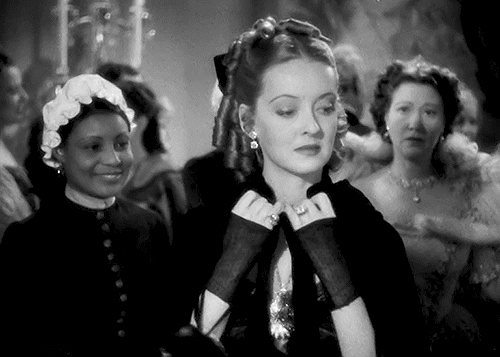
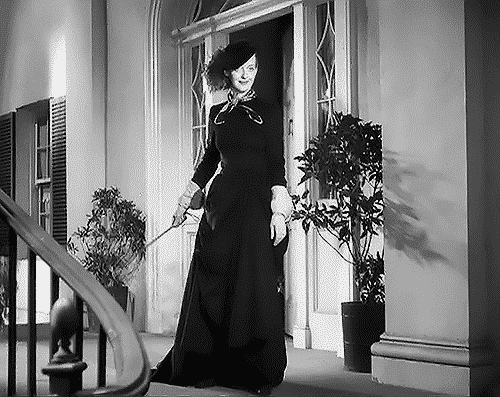

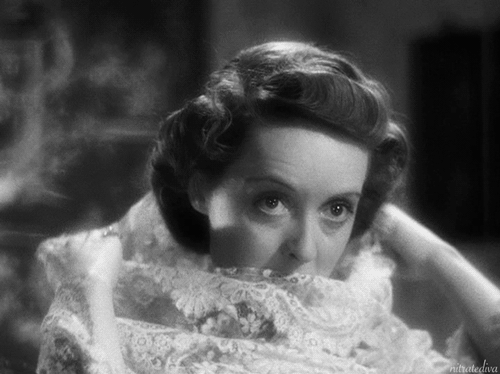

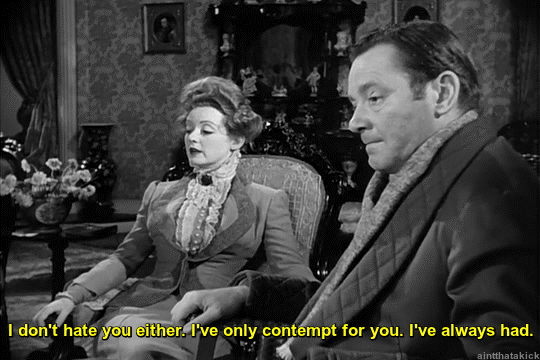



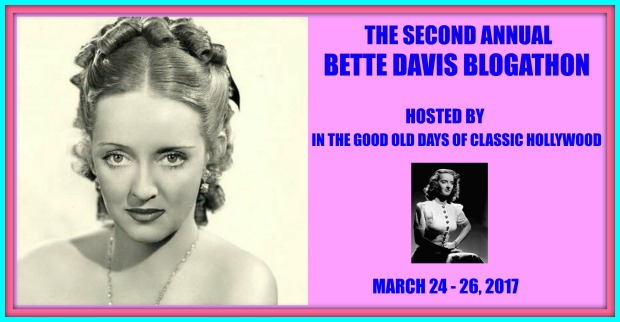
4 comments:
I'll be honest: I often forget about Wyler when I think of my favorite directors, despite really admiring his work. He and Bette certainly had a fascinating relationship. The fact that she actually listened to him and followed his direction is interesting, considering how often she followed her own instincts instead. Great post!
Great post! I love William Wyler and all of his movies with Bette.
I would love for you to add it to the Classic Movie Marathon link party that launched last night. http://classicmovietreasures.com/classic-movie-marathon-link-party-premiere/
That must have been quite the battle between the two of them! Sounds almost as dramatic as a movie! Really enjoyed your post on these two - I think their films together are definitely some of her best. I want to watch them again, now. :)
Excellent look at these movies from two creative souls I admire greatly. Well done!
Post a Comment